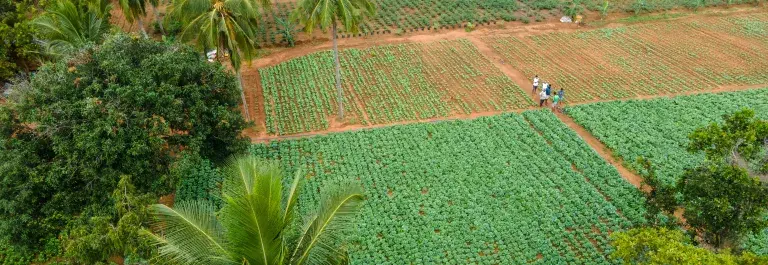Are sustainability systems reducing greenhouse gas emissions? For now, the research is insufficient
Driving down greenhouse gas emissions (GHG) is vital for people and planet. More research is needed to help us understand what works best.
As partners in the EU Horizon project STAR4BSS, ISEAL and Evidensia recently conducted a systematic evidence mapping on sustainability systems in the biobased sector and GHG emissions.
Better, wider research on how sustainability systems tackle GHG emissions will build understanding on what works and what doesn’t, sharpening more impactful strategies.
What’s the evidence on sustainability systems and emissions reduction?
Both ISEAL and our membership commit to being part of the climate solution. Steps to quantify greenhouse gas (GHG) emissions and to incentivise investments in reduced emissions can help and indeed are already being taken.
But our recent systematic mapping reveals there is very little research focusing on the effectiveness of such efforts.
The recent evidence mapping extended beyond ISEAL members, as STAR4BSS looks at all certification schemes and labels applicable to the biobased sector, and schemes and labels operating at different stages of the value chain.
Additionally, the evidence mapping was not restricted in geographical terms. Research on bioenergy and biofuels products was outside the project scope, but feedstock production such as sugarcane and forestry was included.
What are the conclusions on impact?
Forty-one academic articles met the criteria for inclusion in our research. The evidence base was relatively robust, as all but one of the articles adopted a quantitative study design to draw conclusions on impact, and most included some form of counterfactual analysis.
Thirty-one articles found a positive impact between the scheme or label, and the reduction of GHG emissions.
At present, not all schemes or labels are seeking to reduce GHG emissions.
What are the gaps to fill?
The evidence mapping reveals clear gaps. Most of the research focused on South-East Asia and parts of Europe.
Sectoral gaps exist too, since most research focuses on agriculture (primarily palm oil, rice and dairy products), followed by forestry.
As a whole, the evidence captures a rather small number of certification schemes and labels, with only IFOAM, Forest Stewardship Council (FSC) and Roundtable on Sustainable Palm Oil (RSPO) appearing in more than three studies.
It is also worth noting prominent gaps in research on GHG emissions reduction in the later stages of the value chain, beyond the production and extraction of raw materials.
Interested in learning more?
The findings of the evidence mapping have been peer reviewed and published. You can read the full paper and its conclusions on Evidensia.
Evidensia’s library also contains several reports from ISEAL and its membership, including information on their work related to GHG reduction and emissions.
We encourage those working on GHG emissions to send their monitoring reports or papers to evidensia@isealalliance.org for review. These reports will be assessed for quality and relevance before being uploaded to the evidence library.
